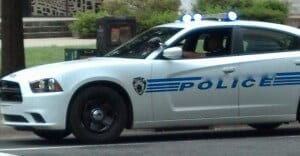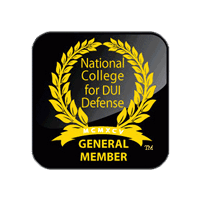Charlotte DWI Blood Draw
Although subject to intense debate, police can do a blood draw if they have probable cause to arrest. Furthermore, there are actually two blood draw options following a DWI arrest. First of all, the NC implied consent statute gives your consent to testing by breath, blood, or urine. Certainly, you can refuse to take the tests as part of the criminal case. But if you do, your license or driving privileges are revoked for 1 year. Although the revocation can be challenged, you cannot win a “willful” refusal.
Now, once you refuse the breathalyzer, you’re not done. Originally, the State could do a blood draw by having the arresting officer secure a search warrant from a local magistrate. But now, pursuant to a recent appellate decision, the State may do a warrantless blood draw under exigent circumstances. So should a police officer alone determine whether circumstances exist for a blood draw without judicial oversight?
Blood Draw with a Warrant
First of all, here is our the warrant process should work. To obtain a search warrant, the investigating officer fills out a one-page request about the size of a traffic citation. Then, a magistrate judge signs the warrant. Here in Charlotte, a magistrate judge is available 24 hours a day. However, in rural counties, the process is different. Consequently, officers assert that a warrant is not practical given the dissipating nature of blood alcohol evidence. Despite such claims, these warrants are an important protection of our civil rights. Frankly, these rules protects everyone. Just remember, the rights of the weak sets the standard for all of society. Today, it is some other person. Next time, you could be the one facing a Charlotte DUI.
Blood Draw Without a Warrant
Because alcohol remains in the blood only temporarily, time is critical. Under current DWI law, an officer may blood draw without a warrant if a substantial delay in getting the search warrant would prejudice the State. Of course, each case is unique for whether the warrantless blood draw is justified. As as result, expect more challenges by Charlotte DUI defense lawyers.
The most recent NC DWI case dealing with taking blood against a defendant’s will is State v. Granger. Courts in NC and other States are grappling with the US Supreme Court’s ruling in Missouri v. McNeely that held the physiological dissipation of alcohol, without more, does NOT create an exigent circumstance sufficient to allow the government to draw a suspect’s blood without a warrant. Nevertheless, the NC Court of Appeals in Granger concluded that exigent circumstances justified the warrantless withdrawal of the defendant’s blood about an hour and a half after he drove because (1) it would have taken an additional 40 minutes to obtain a warrant, and (2) it would have been impractical for the lone investigating officer to leave the defendant unattended in the hospital.
Blood Draw Case Facts
The defendant was driving at approximately 2:19 a.m. in Wilmington when he rear-ended another vehicle. Police responded the accident and found the defendant in pain and smelling of alcohol. As a result, police took him to the hospital by ambulance. Once there, the officer observed that the defendant’s eyes were bloodshot and glassy. Furthermore, the defendant admitted to drinking “three shots’” between 10 p.m. and 11 p.m. Also, he admitted taking his last shot approximately twenty minutes before the accident. Consequently, the officer performed two portable breath tests showing positive for alcohol. Finally, the officer did horizontal gaze nystagmus testing which the defendant also failed.
Based on these findings, the officer believed there was probable cause to obtain a blood sample and read implied consent rights. Approximately 40 minutes later, the officer requested a blood draw, but the defendant refused. Accordingly, the officer instructed the nurse to draw the defendant’s blood over objection. Subsequent test results showed a blood alcohol concentration of 0.15%, almost double the so-called “legal limit.” While here, the officer’s suspicions were right, but is that enough under DUI law?
Blood Draw Case Analysis
In its decision, the Court of Appeals found exigent circumstances existed at the time of the blood draw. More specifically, the Court noted the officer’s concern about alcohol dissipation more than an hour after the accident. In addition, getting a warrant would take at least 40 minutes to travel to and from the magistrate’s office. Also, the officer would have to wait for another officer before he could travel to the magistrate. Finally, if left unattended, hospital staff might give pain medication that would possibly contaminate the blood sample. In the end, the Court found these reasons sufficient.
Blood Draw Case Reasoning
The Granger case seems like an exercise to create exigency where none otherwise existed. First, the officer’s professed concerns about dissipating alcohol seems specious. The time from accident, arrest, and testing was not significant. The State regularly presents toxicology experts to juries to explain how the human body processes alcohol and then extrapolates known data to estimate BAC levels in DWI cases. It also seems strange that the officer’s estimation of an additional 40 minutes to procure a warrant would somehow irreparably prejudice the State.
A similar delay in releasing a defendant for independent testing under a Knoll Motion would be summarily disregarded by the most liberal of judges. Similarly, the officer’s hesitancy to call for backup or leave the defendant alone can be remedied by simply taking the defendant with him. There were no serious injuries to treat, and that option would also cure any concern about the suspect being given pain medication while away. Of course, pain medication, even narcotics, would have no effect on BAC levels. Any toxicologist could explain the difference to a judge or jury.
In Conclusion 
Because the State has the entire burden of proof in DWI arrests, this case is disconcerting. Rather, any warrantless blood draw case must be carefully evaluated and scrutinized. Even small facts can make a big difference here. While the admission of this evidence is a question of law for a judge, I believe the courts should critically examine each case carefully to prevent police overstep under the guise of exigency. After all, if we disregard warrants in DWI cases, where does it stop. We are warned about slippery slopes, and this scenario certainly has potential to become one.


